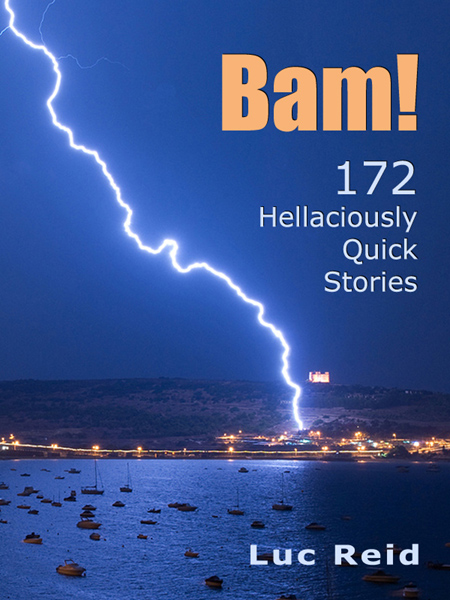“I feel scattered,” I told my closest friend today when we were out walking on Church Street in Burlington, Vermont. I talked about my ongoing work on The Willpower Engine, my recently-released book of flash fiction, my wish that I had time to work on novels again, and other writing interests and aspirations.
photo by redjar
For well over two and a half years, I’ve blogged three to five times a week at the Willpower Engine about the psychology of motivation and habits. Since April of 2007, I’ve been blogging about writing sporadically at http://reidwrite.livejournal.com, although the ridiculously intrusive advertising LiveJournal has introduced over the last year or so has made me eager to move that blog somewhere else. These two blogs and the way they separate my blogging attention reflect a similar split in my writing focus: I’ve been doing fiction and non-fiction at the same time, and although I’ve prioritized my writing about the psychology of habits, my powerful interest in writing fiction has meant that it’s never been possible to really focus on only my Willpower Engine writing.
Another problem I’ve faced in going forward with my Willpower Engine writing is that I have no professional background I can point to that makes me an authority on the psychology of motivation. Yes, I’ve studied and written about the topic intensively for years (well before I ever started this blog), and I’ve kept up with a lot of the current psychological research. However, I don’t have a degree in psychology, I’m not a therapist, and I don’t have professional non-fiction writing credits in the area of psychology. I also don’t have experience running seminars or workshops on the subject. What all of this means is that I’m not enough of a recognized authority to have interested a publisher in the nonfiction book I’ve been working on, so even while the readership for the Willpower Engine site climbs week after week and as my understanding of the topic becomes deeper and wider, the aspiration I’ve had of placing the non-fiction book with a major publisher hasn’t gone anywhere.
I’ve also had trouble finding a proper voice for The Willpower Engine. I’m not a therapist and don’t want to sound like one, but I am trying to convey useful information in a way that is easy to understand and make use of without being too dry or abstract about it.
And with my attention tied up for years with the Willpower Engine project, I haven’t been putting any serious work into novels. I’ve seen many of my talented peers in the Codex writers group sell novels and land multi-book deals while my own fiction career has been limited almost entirely to flash fiction written for The Daily Cabal–although admittedly, I love writing flash fiction, and all of that writing has led to a new eBook release, my flash fiction collection called Bam! 172 Hellaciously Quick Stories (available at $2.99 from Amazon for the Kindle and from Smashwords for all eReaders).
So I’ve been doing a lot of work that I’m proud of, and I’ve been immensely grateful for everything I’ve learned so far about my own motivation and habits– but at the same time, I’ve been ignoring my own advice to take on only one major goal at a time. From my point of view, I felt as though I had no choice: I’m far too interested in the psychology of motivation to give up my Willpower Engine work, and writing fiction is far too important to me to give up either. What’s more, I’ve had major accomplishments in both areas, like the thousands of readers who come to this site and my Writers of the Future win with my fiction. How could I possibly stop doing either one? I can’t, that’s how. And yet splitting my attention is preventing me from moving forward.
But what emerged in my conversation with my friend (to finally get back to that) was the possibility of merging my interests, focusing my efforts on all of the things that are most important to me and none of the ones that aren’t central. Specifically, while not giving up the idea of writing nonfiction books sooner or later, I can focus on a novel–and my challenge with that novel can be to use what I’ve learned about the psychology of motivation so well that readers of the novel, while not being lectured or taught in any usual sense, come away knowing a lot more than they used to about the subject in ways that they can actually use in their lives. In other words, instead of explicitly offering information in the form of non-fiction, I can weave that knowledge into my fiction, in service to storytelling, and make a hell of a story that also carries some real-world knowledge. I have a real advantage here: very few fiction writers have spent years studying the scientific research on human motivation.
This idea made immediate and powerful sense to me, but I had reservations, especially about the Willpower Engine blog. I don’t by any means want to abandon it, and yet the amount of time and attention that goes into posting three articles a week on the psychology of motivation is too much of a drain to allow me to really focus on a novel. Even one post a week, a bare minimum in my mind for anything I would call “posting regularly,” would take too much attention away.
The solution to that problem is to allow the Willpower Engine to change. It already has hundreds of articles on a wide variety of topics relating to goals, habits, emotions, self-confidence, and willpower. But instead of adding more such articles, I’m changing the focus of the blog to write about motivation and writing, motivation in my own life pertaining to my writing, and especially weaving psychological findings into my fiction. This new version of the blog will still have a lot to say about the psychology of habits and related subjects, and some posts may well be similar to ones I’ve posted on the Willpower Engine in the past. There will also, however, be posts on writing fiction, as I’ve posted periodically on my ReidWrite blog, as well as posts about trying to integrate what I’ve learned into my own life and my fiction.
The blog name will need to change: for one thing, it will incorporate both of the previous blogs, ReidWrite and The Willpower Engine. For another, it will have a different focus than either. But I’m not greatly worried about a new name for the blog just yet, or other technical concerns, like how I’ll arrange the content on the page. Instead, I’ll begin to prioritize questions like how I can sharpen my focus in life so that my non-writing endeavors are less scattered, on whether I should focus my career at present on young adult or adult novels, and on which of the many, many, many novel ideas I’ve developed over the past ten years I’ll choose for my new project–if indeed I don’t come up with something entirely new.
I think readers of ReidWrite will find much more of interest here for the foreseeable future. For regular readers of The Willpower Engine, I hope this announcement will not be discouraging. Of course I’m hoping that much of the new content of this blog will continue to be meaningful in those readers lives and to serve some of the same purposes my posts have in the past, but with the change in focus, I can’t imagine this will be the case for all Willpower Engine readers. For readers interested only in articles of the kind I’ve written on The Willpower Engine so far, I hope you’ll find much of use by delving into the 328 posts I’ve already put up on this site and more in some of the similar posts I’ll be doing from time to time in the future.
The new blog will not keep to a regular schedule, but for the immediate future I’ll certainly have a lot to post about, including using what I’ve learned about the psychology of motivation, choosing a novel project, developments in the electronic publishing world, findings from my eBook flash fiction experiment, and more.
To all readers, thank you very much for your support so far. I welcome your comments and ideas and hope you’ll find much to entertain, enlighten, and involve you on the new site.
Luc Reid
January 2, 2011






